Sīrū fī al-Arḍ: Qur’anic Insights on the Purpose of Travel
قُلْ سِيرُوا۟ فِى ٱلْأَرْضِ ثُمَّ ٱنظُرُوا۟ كَيْفَ كَانَ عَـٰقِبَةُ ٱلْمُكَذِّبِينَ (سورة الأنعام) 11
“Say, Travel throughout the land and see the fate of the deniers.” (Al-An'aam:11)
One year ago, my grandfather shared his travel experiences to the Arabian lands—Jordan, Syria, Palestine, and Egypt. He spoke not only about the sacred places there but also about the sites where Allah’s punishment had occurred. This awakened my awareness of the context of travelling as mentioned in the Qur'an, more than fifteen times.
Islam places significant emphasis on the importance of travel. This emphasis arises from the numerous benefits and wisdom that can be derived from it. Beyond physical and mental refreshment, travelling offers a means to observe and reflect upon the magnificent creations of Allah spread throughout the universe. Allah created this world for human beings to cultivate and, through it, come to know Him better. As stated in a Qudsi ḥadīth: “I (Allah) was a hidden treasure; I wanted to be known, so I created creation. Then I introduced myself to them, and they came to know Me.”
One way to recognise Allah’s existence is through contemplating His creations on earth. The motivations for travelling vary widely—economic, social, cultural, political, religious, and health-related reasons, as well as personal drives such as curiosity, the desire for new experiences, and the pursuit of knowledge. People may also travel for sports, conventions, religious duties, or other professional needs. Taking even a single day each month to step away from one’s routine and travel with family, relatives, or loved ones can bring profound psychological and spiritual benefits.
The Qur'an, as a guide for humanity, includes several verses that highlight the importance of journeying through the earth.
How the Qur'an Approaches Travelling
The Qur'an commands travelling, and this is evident from verses that use the imperative sīrū (travel). To further reinforce the directive, the word sīrū is often preceded by qul (say), which is Allah's command to the Prophet Muḥammad ﷺ to instruct his people, particularly the disbelievers and deniers of the truth, to travel through the earth. By doing so, they are urged to witness the consequences faced by earlier nations who rejected the truth, nations whom Allah destroyed as a result of their denial.
There are four instances in the Qur'an where the command sīrū is preceded by qul and followed by fī al-arḍi (through the land). These occur in the following chapters: Sūrat al-An‘ām (6:11), al-Naml (27:69), al-Rūm (30:42), and al-‘Ankabūt (29:20).
- Sūrat al-Anʿām (6:11)
قُلْ سِيرُوا فِي الْأَرْضِ ثُمَّ انظُرُوا كَيْفَ كَانَ عَاقِبَةُ الْمُكَذِّبِينَ
Translation:
Say, "Travel through the land and see what was the end of those who denied [the truth]." (Translation: Saheeh International)
- Sūrat al-Naml (27:69)
قُلْ سِيرُوا فِي الْأَرْضِ فَانظُرُوا كَيْفَ كَانَ عَاقِبَةُ الْمُجْرِمِينَ
Translation:
Say, "Travel through the land and observe how was the end of the criminals." (Translation: Saheeh International)
- Sūrat al-Rūm (30:42)
قُلْ سِيرُوا فِي الْأَرْضِ فَانظُرُوا كَيْفَ كَانَ عَاقِبَةُ الَّذِينَ مِن قَبْلُ ۚ كَانَ أَكْثَرُهُم مُّشْرِكِينَ
Translation:
Say, "Travel through the land and observe how was the end of those before. Most of them were polytheists." (Translation: Saheeh International)
- Sūrat al-ʿAnkabūt (29:20)
قُلْ سِيرُوا فِي الْأَرْضِ فَانظُرُوا كَيْفَ بَدَأَ الْخَلْقَ ۚ ثُمَّ اللَّهُ يُنشِئُ النَّشْأَةَ الْآخِرَةَ ۚ إِنَّ اللَّهَ عَلَىٰ كُلِّ شَيْءٍ قَدِيرٌ
Translation:
Say, "Travel through the land and observe how He began creation. Then Allah will produce the final creation. Indeed, Allah is over all things competent." (Translation: Saheeh International)
The first three verses share similar wording but end with different terms: mukadhibīn (deniers), mujrimīn (criminals), and mushrikīn (polytheists). All three carry a negative connotation and refer to groups upon whom Allah’s punishment was decreed. In contrast, Sūrah al-‘Ankabūt (29:20) ends with the phrase: “Indeed, Allah is over all things competent.”
In this context, Sūrah al-An‘ām (6:11) explicitly conveys Allah’s command to the Prophet ﷺ to urge his people to travel the earth and observe the places where past peoples who had doubted their prophets were destroyed. This form of journeying becomes a means of reflection, allowing one to witness the historical ruins of once-mighty nations and ponder the reason behind their downfall.
Although the pagan Quraysh were accustomed to travel, primarily as traders across the Arabian Peninsula, they failed to take heed of the remnants of past civilisations they passed by, such as the people of Nūḥ, Thamūd in North Arabia, and ʿĀd in the South.
A reflection on these matters leads any thinking person to conclude that nothing in this world is permanent, and that behind all these events and creations lies the manifestation of a power that is Supreme and Almighty, namely Allah.
Imām al-Ṭabarī, in his Tafsīr, explains that the verse “Say, travel through the land and observe how He began creation...” is addressed to those who deny resurrection and the reality of reward and punishment, urging them to reflect on the origin of creation as evidence for life after death.
From Sayyid Quṭub’s perspective, the natural world is filled with signs that point toward the origin of life and the beginnings of creation. These are questions that continue to preoccupy archaeological inquiry: How did life begin? How did it spread and evolve? What is life? Where did the earth come from, and how did the first living organism emerge? These fundamental questions remain without final answers. According to Quṭub, the Qur’anic verse in question serves as a divine directive to explore the origins of life, presenting such investigation as a path to affirm the certainty of the afterlife.
Travel is intended to awaken one’s senses and emotions through the new sights encountered, while also urging reflection and drawing lessons from the clear signs of Allah’s power in the creation of life, manifested continuously throughout night and day. Sayyid Quṭub ultimately concludes that the Qur'an conveys its guidance in a manner that aligns with human circumstances across different generations, adapting to their varying levels of understanding, contexts, and available means.
The compilers of al-Muntaḫab, a commentary authored by a group of experts from various disciplines, as quoted by Quraish Shihab, interpret Sūrat al-ʿAnkabūt (29:20) as a divine directive to scientists. It commands them to explore the earth in order to uncover the process by which the creation of all things began, whether it be animals, plants, or inanimate objects. According to them, the traces of the first creation remain observable within the earth’s layers and on its surface. In this sense, the Earth serves as a complete record of the history of creation, from its origin to the present time.
According to al-Zamakhsharī, the phrase fa-unẓurū means "observe," referring not only to sight with the eyes but also to reflection with the heart. It indicates that the journey should lead to thoughtful observation. The expression is essentially saying, "Travel with the purpose of thinking; do not be careless." Meanwhile, thumma unẓurū ( in al-Anʿām 6:11) implies that it is permissible to travel the earth for trade and other practical needs, while also carrying a message about the duty to reflect on the ruins of past nations that were destroyed.
Allah makes it clear that those who disobey, reject His commands, and deny His messengers will be destroyed, even if those before them were stronger in physical power and more successful in material achievements, as shown by the larger number of ruins they left behind. On the other hand, those who are obedient to Allah will be safe from punishment in this world and the next.
Purposes of Travel Mentioned in the Qur'an
A close examination of the verses related to travel reveals multiple purposes and benefits associated with it.
First, travel serves to witness the end of those who denied religion. For instance, Pharaoh was drowned in the Red Sea while pursuing Prophet Mūsā. Allah made the Children of Israel a sign and a lesson for future generations, as indicated in Surah al-Anʿām (6:11) and al-Naml (27:69).
Second, travel allows one to explore the universe with all its artistry and beauty, leading to a deeper understanding of human beings and Allah’s creation.
Third, it serves to increase insight, purify the heart, and refine the mind in order to make the spiritual journey toward Allah successful.
The significance of travel is further emphasised in a narration attributed to Imām al-Shāfiʿī, who said:
"Leave your homeland in pursuit of honour, and travel, for in travel there are five benefits: relief from anxiety, livelihood, knowledge, noble manners, and companionship with the honourable. If someone says, 'In travel there is humiliation, hardship on the roads, and burden to carry,' then know that death is better than a life of humiliation in a land of disgrace, among fools and cowards."
Such is the religious encouragement to travel that any journey not intended for sin or immorality receives special dispensations from Allah. For instance, fasting may be suspended during travel, as stated in Surah al-Baqarah (2:183, 185). The ẓuhr and ʿaṣr prayers can be combined (jamʿ), as well as maghrib and ʿishāʾ, either through jamʿ taqdīm (advancing the later prayer) or jamʿ taʾkhīr (delaying the earlier one). Furthermore, the four-unit prayers may be shortened (qaṣr) to two units while travelling.
In earlier times, people travelled using simple means of transport—donkeys, camels, horses, and elephants. In contrast, modern travel is characterised by more advanced, refined, and elegant modes of transportation across land, sea, and air.
With the rapid development of technology, travelling and exploring the universe have become easier and more convenient. This exploration is no longer limited to the Earth but can even extend to other planets, as alluded to in the Qur'an [55:33]. The phenomenon of travel has existed since the beginning of human civilisation, as seen in the movement of people for pilgrimages, religious journeys, and other purposes.
Today, the time is ripe to actualise the command to travel (sīrū) found in the Qur'anic verses by promoting and developing tourism in meaningful ways.
This approach to tourism can offer visitors new experiences and valuable insights. Each tourist destination offers something unique, whether through its natural landscapes, local culture, or traditional crafts. Tourism management in the modern world should strive to integrate effective, contemporary practices with the principles of Islamic teachings, adhering to the boundaries set forth in the Qur'an. The goal is to strengthen faith, and its implementation must avoid anything that contradicts religious or moral values. The focus should be on showcasing natural or cultural heritage that is permissible and appropriate to present.
About the author
Al Sabith M is a Degree Research Scholar in the Department of Qur'an and Related Sciences at Darul Hidaya Da'wa College, Manoor. His research focuses on exploring the various aspects of daily life as addressed in the Qur'an, aiming to draw practical guidance and spiritual insight from the Divine revelation. He is particularly interested in themes such as travel, human behaviour, and ethical living as reflected in the Qur'anic discourse.
References
The Noble Qur'an
Tafsīr al-Ṭabarī by Muḥammad ibn Jarīr al-Ṭabarī
Tafsīr Ibn Kathīr by Ibn Kathīr
Fatḥu al-Raḥmān by K.V. Muhammad Musliyar
Travel in Islam: A Study of the Concept of Sīrū – Article
The Spiritual and Social Benefits of Travel in Islam – Journal
Disclaimer
The views expressed in this article are the author’s own and do not necessarily mirror Islamonweb’s editorial stance.

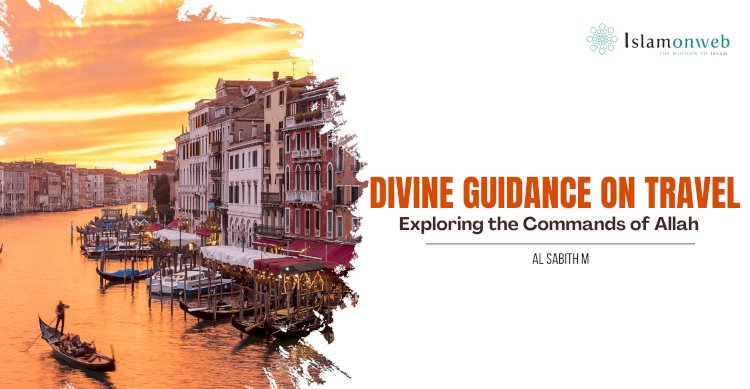



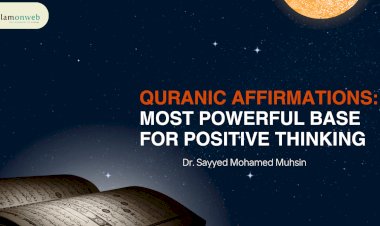
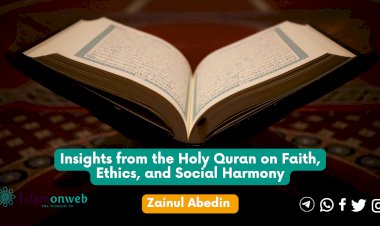
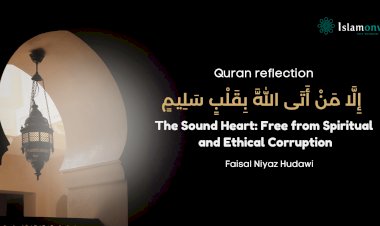

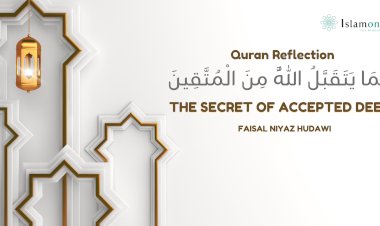















Leave A Comment